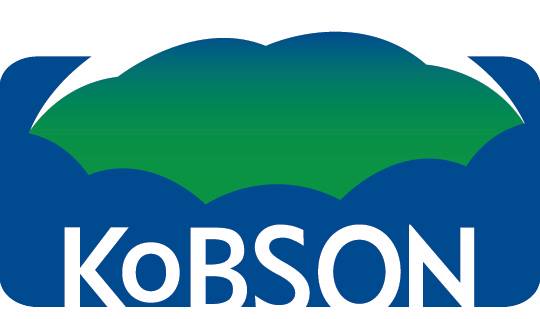DOI: 10.5937/jaes0-38249
This is an open access article distributed under the CC BY 4.0

Volume 20 article 1038 pages: 1335-1344
The effect of using different water resources and cement types on concrete strengths at late ages is investigated. Two types of cement including Ordinary Portland Cement (OPC) and Sulfate Resisting Portland Cement (SRPC) were employed to prepare concrete mixes with potable and well water. Compressive, flexural, and tensile tests on were conducted at 28, 90 and 180 days. Results show that the maximum decreasing of concrete strength was about 42.9% at 180 days compared with the control mix when using well water with OPC. This was due to the chemical contents of well water that are more than the allowed limits. While the reduction in compressive strength was about 31.3% when using well water with SRPC due to sulfate resisting cement. Flexural strength reductions of 50.5% and 42.8% was seen when using OPC and SRPC respectively with well water at 180 days. Same effect was observed for tensile strengths which indicates that using well water has negative effect on concrete strengths at late ages. Modulus of elasticity was calculated using the ACI 318 equation. Higher reduction of 24.5% was seen when using OPC with well water than 17.2% when using SRPC with well water at 180 days compared to control mix.
The construction materials testing laboratory staff are greatly thanked by the authors at Mosul University.
1. Sua N., Miaob B. and Liuc F. S. (2002), Effect of wash water and underground water on properties of concrete. Cement and Concrete Research 32, PP. 777–782, DOI:10.1016/S0008-8846(01)00762-1.
2. Ahmed S. H. (2011), Chemical Acidic Attack Resistance of Lightweight Concrete with Additives. Tikrit journal for engineering sciences. 18(3), 16-29, DOI: 10.25130/tjes.18.3.12.
3. Mohe N. S. , Shewalul Y. W. , Agon E. C. (2022), Experimental investigation on mechanical properties of concrete using different sources of water for mixing and curing concrete. Case Studies in Construction Materials, Volume 16, DOI:10.1016/j.cscm.2022.e00959.
4. Bhamere S., (2016), Comparison of Compressive Strength of Various Brands of Cement. International Journal of Advances in Mechanical and Civil Engineering. 3(3).
5. O. Lawrence E. (2016), Empirical Investigation of the Effects of Water Quality on Concrete Compressive Strength, International Journal of Constructive Research in Civil Engineering (IJCRCE), Volume 2, Issue 5, 2016, PP 30-35, DOI: 10.20431/2454-8693.0205006.
6. Guo Q., Chen L., Zhao H., Admilson J. and Zhang W. (2018), The Effect of Mixing and Curing Sea Water on Concrete Strength at Different Ages. International Conference on Materials Applications and Engineering2017(ICMAE2017),Volume 142, DOI: 10.1051/matecconf/201814202004
7. Hassan I.H., Abdul-Kareem O.M., Shihab A.Y. (2014) , Effect of using well water as mixing water in concrete. Al-Rafidain Engineering journal. 22(5), 17-28 (2014).
8. Zidan R. S., Ahmed T. W., Ali A. M. (2019), The Combined Effect of Using Recycled Coarse Aggregate and Well Water on Normal Concrete. SN Applied. Sciences, (2019) 1: 927.
9. Meena K., Luhar S.(2018),Effect of Waste water on properties of concrete,Journal of Building Engineering 21, DOI: 10.1016/j.jobe.2018.10.003.
10. Allahverdi A., Akhondi M., Mahinroosta M. (2018) , Acomposite cement of high magnesium sulphate resistance,Materias de construction , vol.68, issue330,April-June 2018.
11. Farzampour A. (2019).Comressive Behavior of Concrete under Environmental Effects.Krivenko P. , Compressive strength of concrete,DOI: 10.5772/intechopen.80174
12. Iraqi Standard Specification No.5, "Properties of ordinary Portland cement", Iraq, (2018).
13. BSI BS-882: Specification for aggregates from natural sources for concrete. BSI, London, UK. (1992).
14. ASTM C33/C33M: Standard Specification for concrete aggregate.ASTM International, West Conshohocken, PA, USA. (2018).
15. ASTM C94/C94M: Standard specification for ready-mixed concrete. ASTM International, West Conshohocken, PA, USA. (2017).
16. ASTMC143/C143M: Standard Test Method for Slump of Hydraulic-Cement Concrete. ASTM International, West Conshohocken, PA, USA. (2015).
17. BSI BS 1881, Part 116: Testing concrete, Method for determination of compressive strength of concrete cubes. BSI, London, UK. (1983).
18. ASTM C496/C496M: Standard test method for splitting tensile strength of cylindrical concrete specimens ASTM International, West Conshohocken, PA, USA. (2017).
19. ASTM C293/C293M: Standard test method for flexural strength of concrete (using simple beam with center-point loading). ASTM International, West Conshohocken, PA, USA. (2016).
20. Tr N., Rangaswamy S.(2019), Impact of water Quality on Strength Properties of concrete. Indian Journal of Applied Research, 4(7):197-199, November 2019.
21. Kucche K. J., Jamkar S. S., Sadgir P. A.(2015), Quality of Water for Making Concrete: a review of literature, International Journal of Scientific and Research Publications, Volume 5, Issue 1, January 2015, PP. 1-10.
22. Al-Amoudi OSB (1995) Durability of reinforced concrete in aggressive sabkha environments. ACI Mater J 92(3): 236–245.
23. Vesna B., Mirjana M., Miroslava R., Vlastimir R., Ivan L. (2015), Analysis of Sulphate Resistance of Concrete using Natrium and Magnesium Sulfate Scientific conference, planning, design, construction and building renewal 25-27 November 2015.
24. Cohen M. D., and Bentur A., (1988), Durability of portland cement-silica fume pastes in magnesium and sodium sulfate solutions. ACI Mater. J., 85(3), 148–157.
25. Zhang J., Harvey J., Monteiro P., Ali A. (2015) , Effect of cement type and curing condition on flexural strength of concrete of pavements slabs, July 2015.
26. Tahir1 A., Iqbal A., Usama M.(2020) , Effects of Water Quality on Strength Properties of Concrete. United International Journal for Research and Technology ,17-18, Volume 01, Issue 06, 2020.
27. ASTM C469/C469M: Standard test method for Static Modulus of Elasticity and Poison′s Ratio of Concrete in Compression, ASTM International, West Conshohocken, PA, USA. (2014).
28. Lavanya P. , Shanmukesh D. V., Manoharini K.(2020),Study on effect of sea water for mixing and curing on structural concrete. Bulletin monumental, 181-183, Volume 21: Issue 07 – 2020.
29. Ali A. A. M., Ahmed T. W., Zidan R. S. (2020), Evaluation of high-strength concrete made with recycled aggregate under effect of well water. Case Studies in Construction Materials, Volume 12, DOI:10.1016/j.cscm.2020.e00338.
30. Neville (1994), Properties of concrete. Longman scientific and Technical publication., PP. 10-87.
31. Mama C. N., Nnaji Ch. Ch., Onovo Ch. J., Nwosu I. D. (2019), Effects of Water Quality on Strength Properties of Concrete. International Journal of Civil, Mechanical and Energy Science (IJCMES), Vol-5, Issue-2,2019. DOI: 10.22161/ijcmes.5.2.2.







